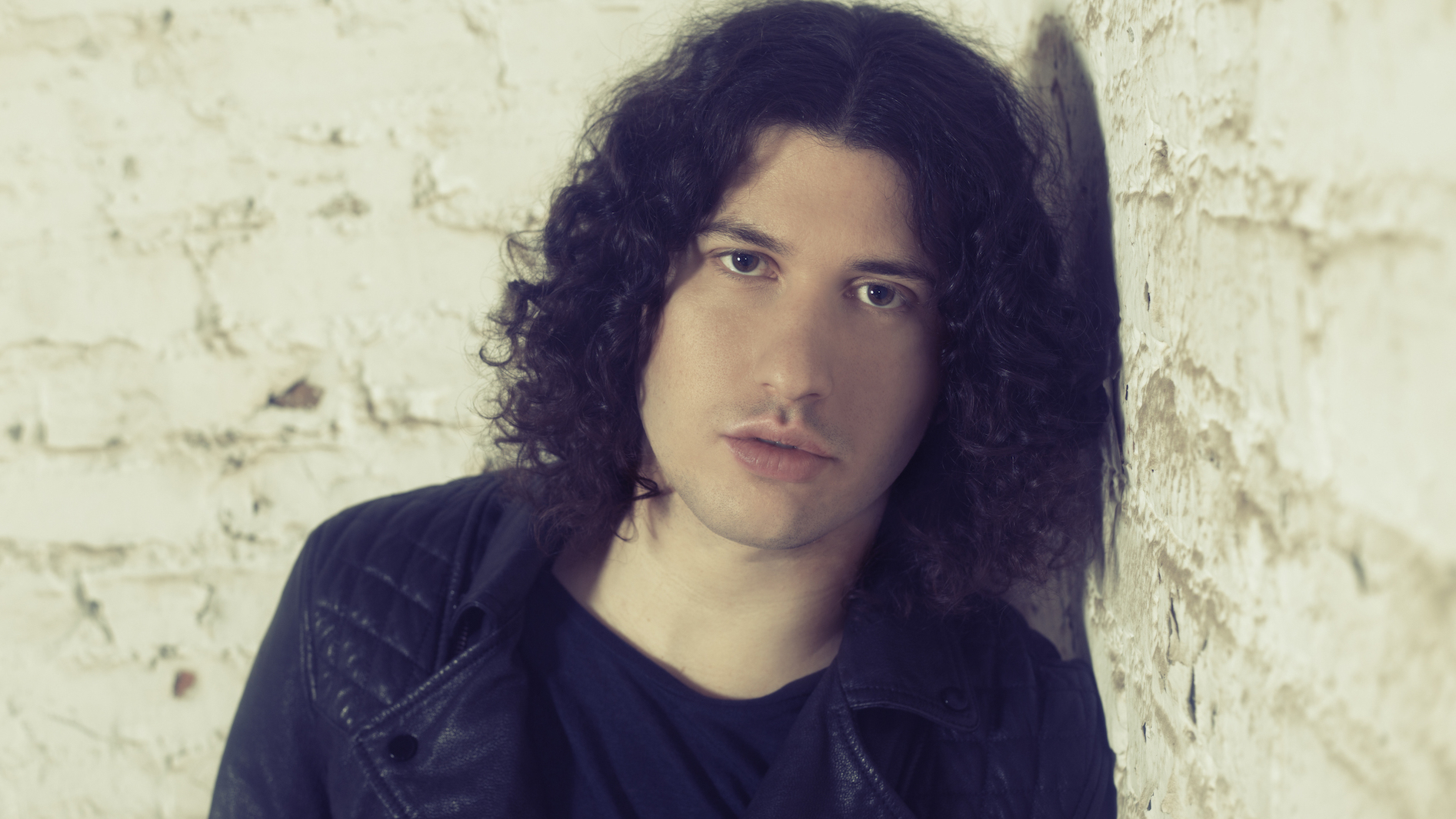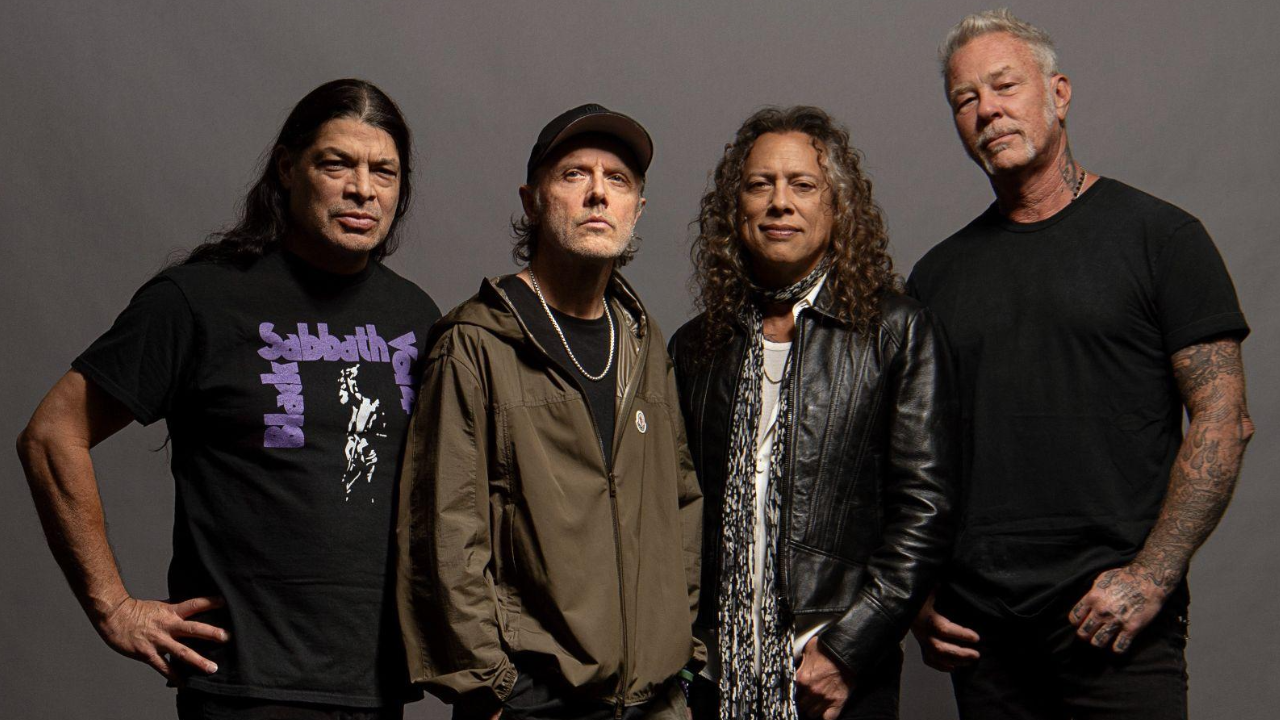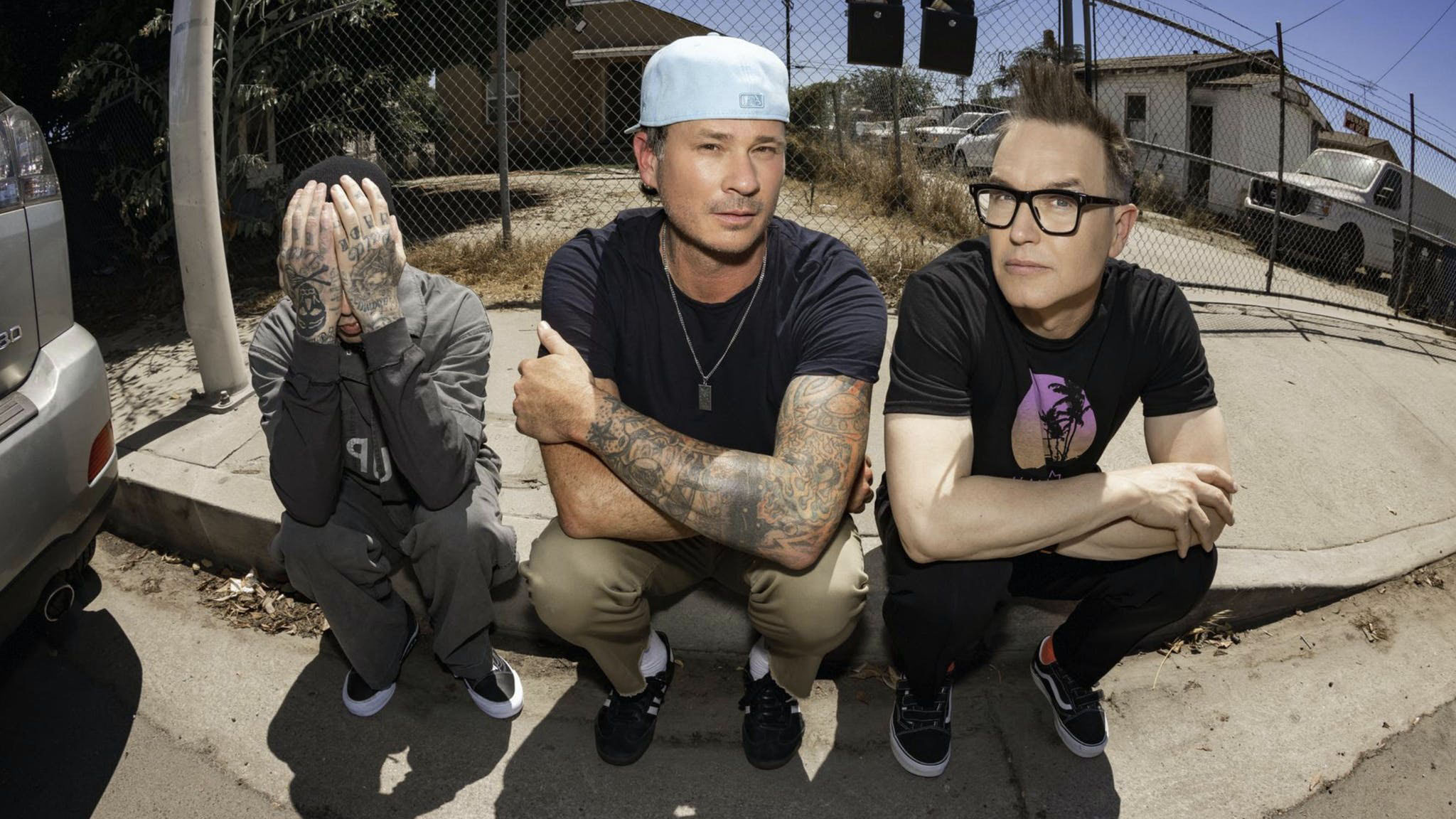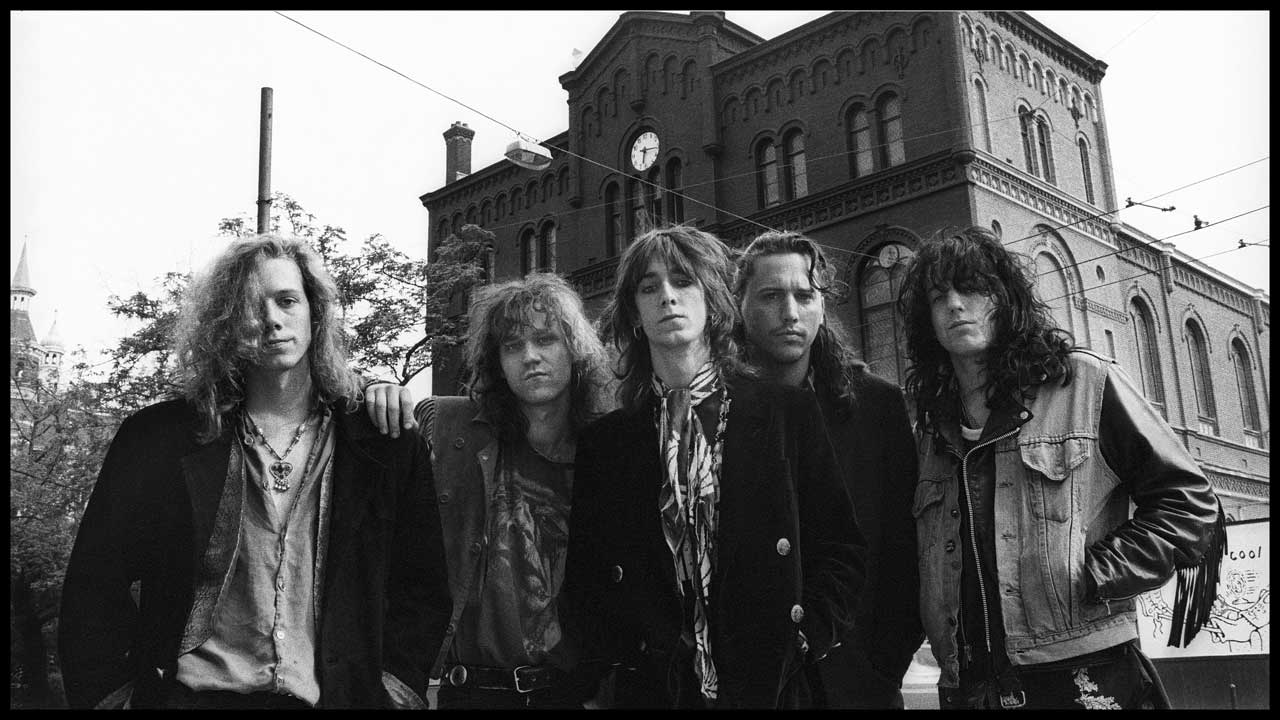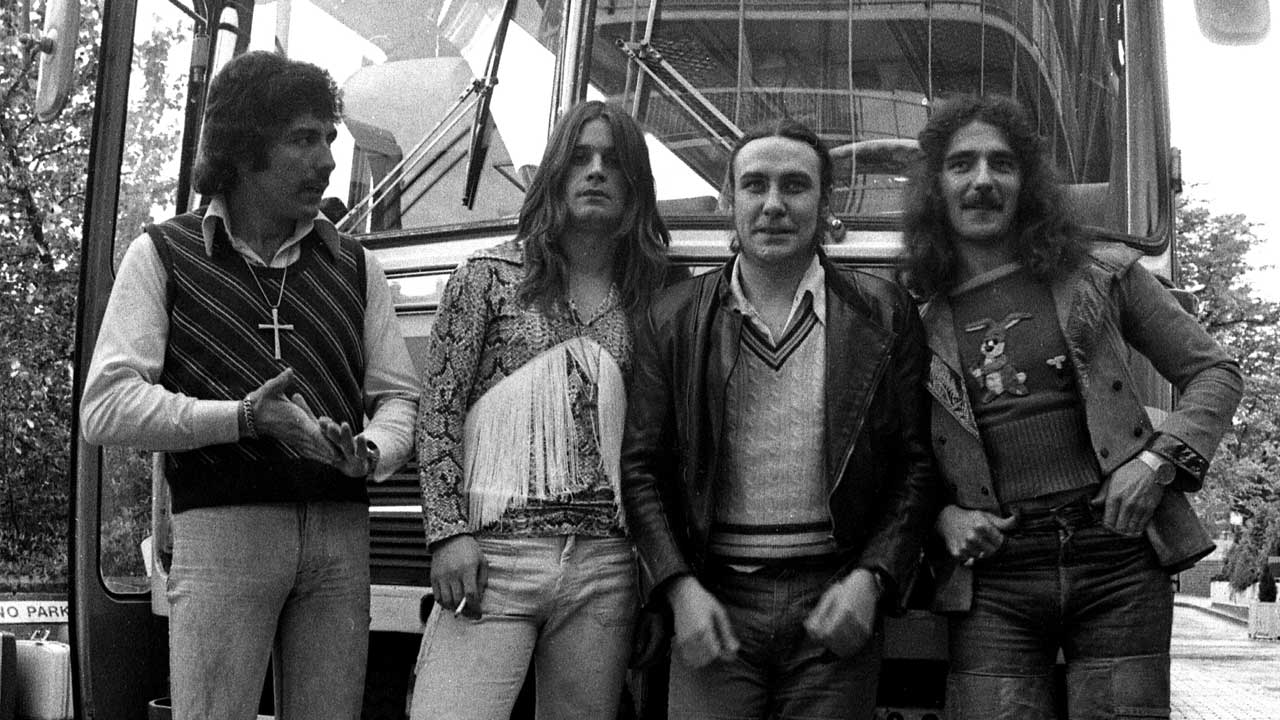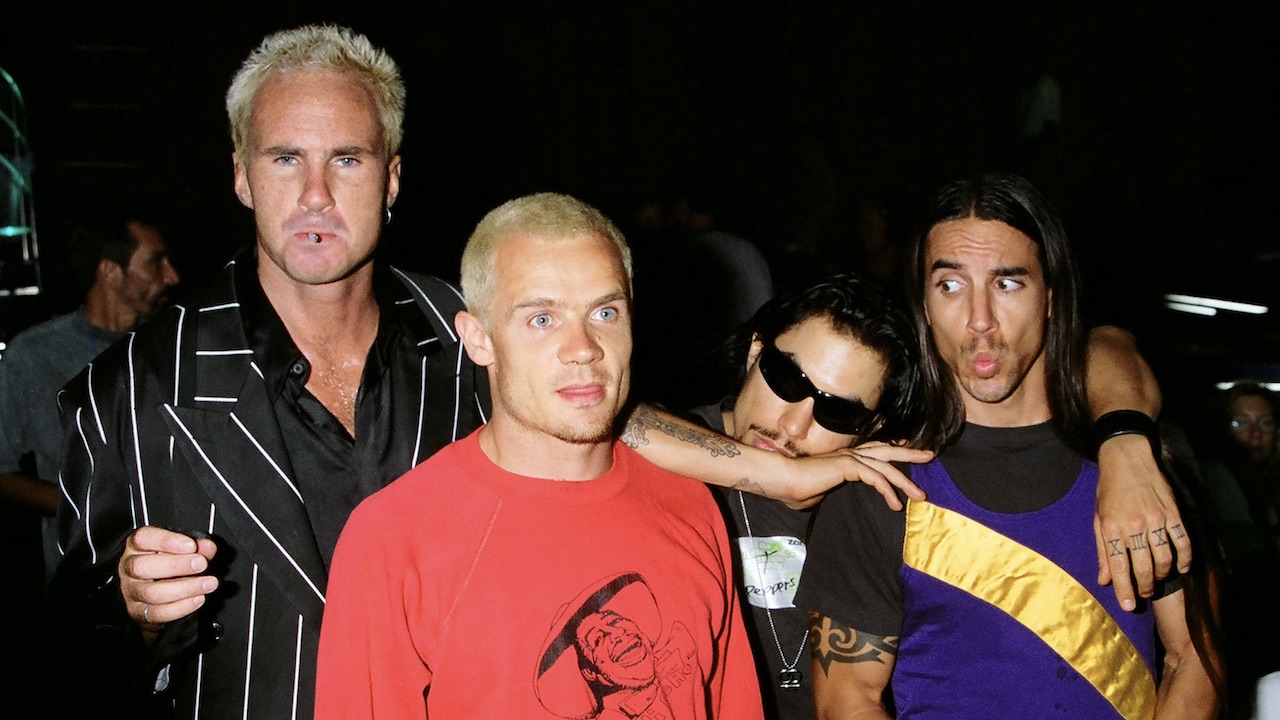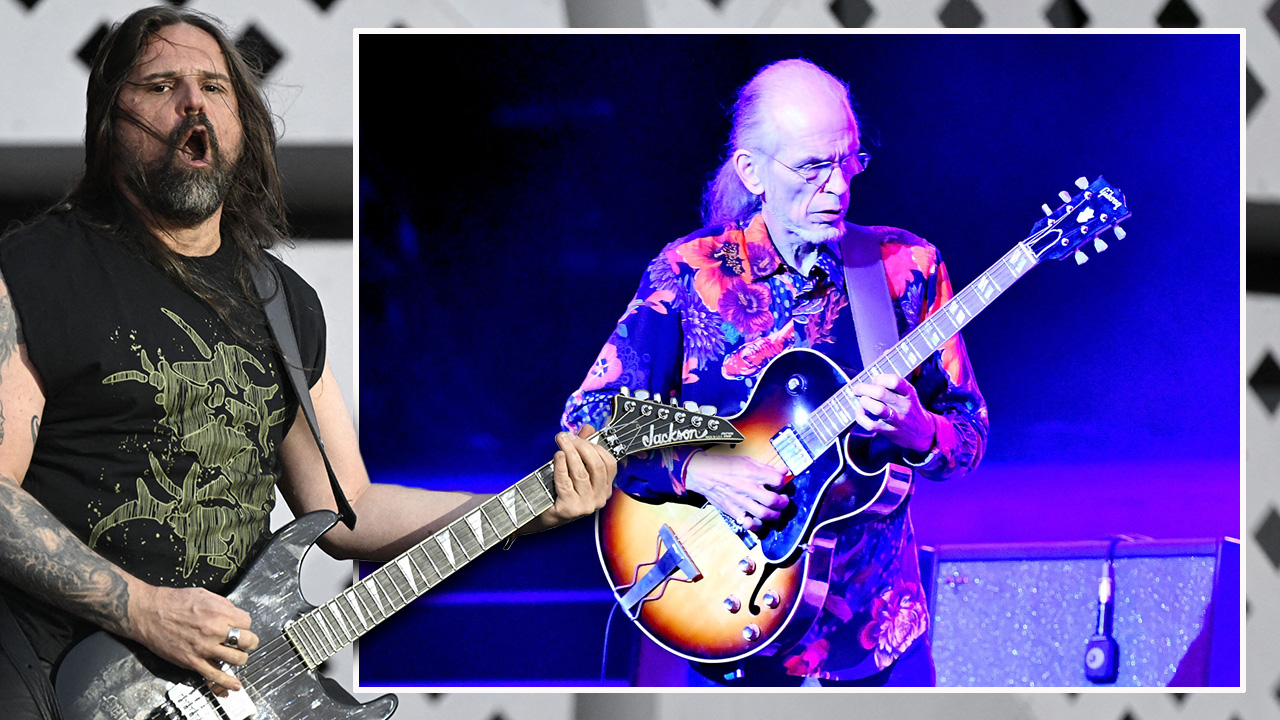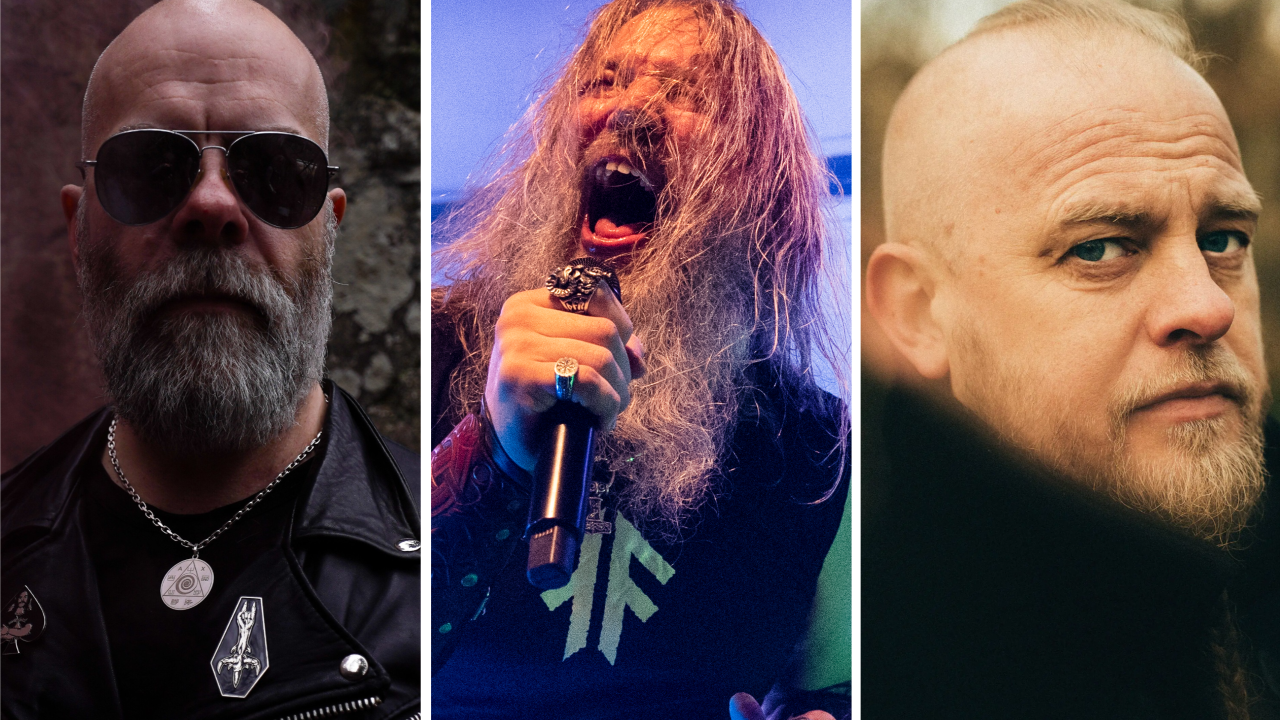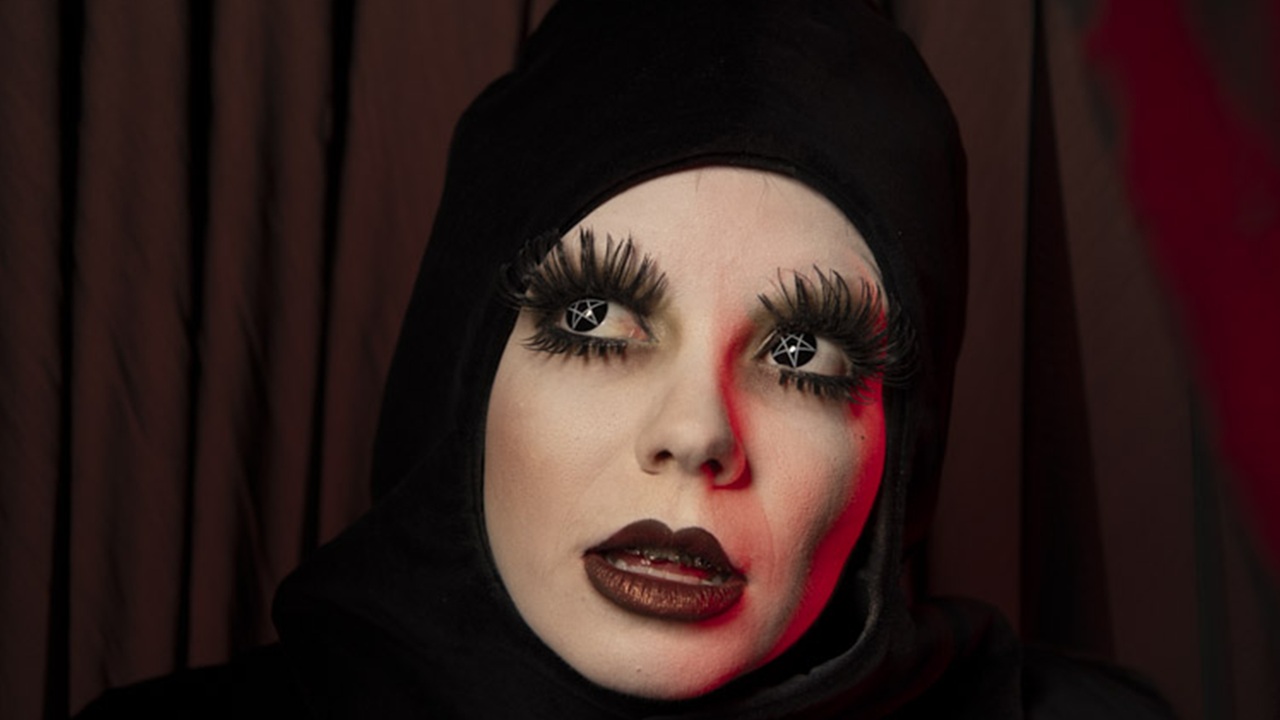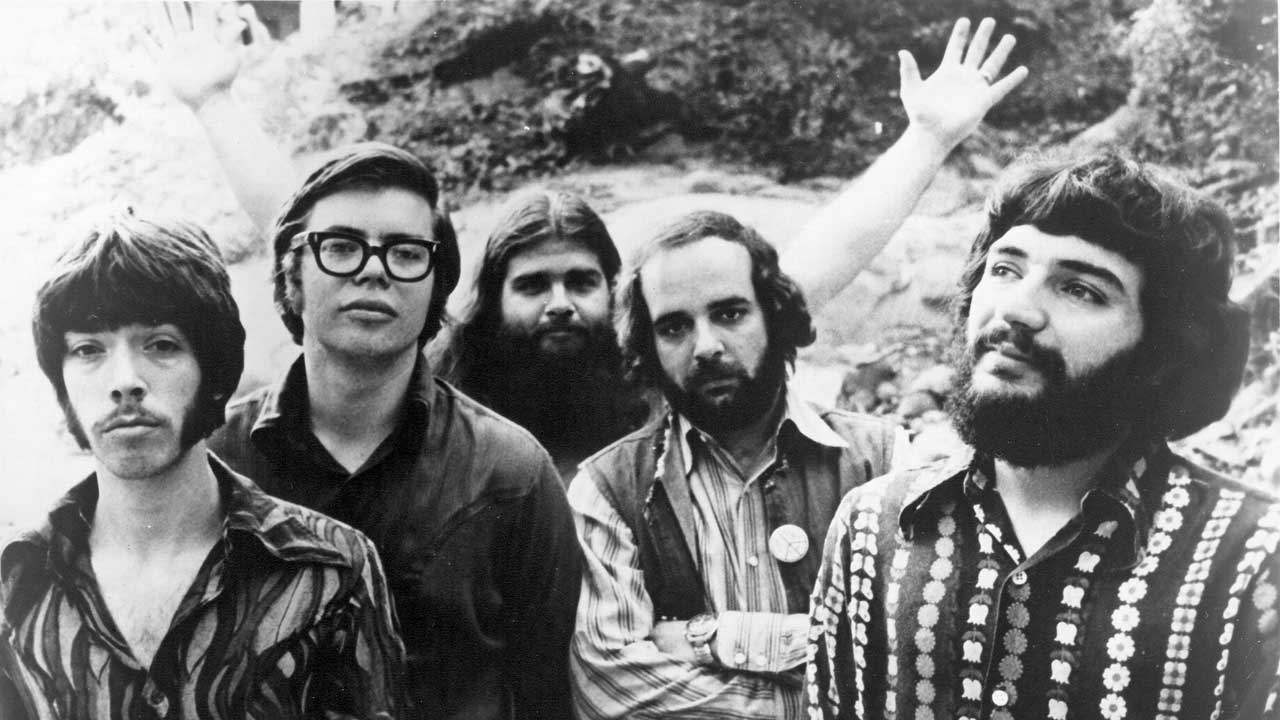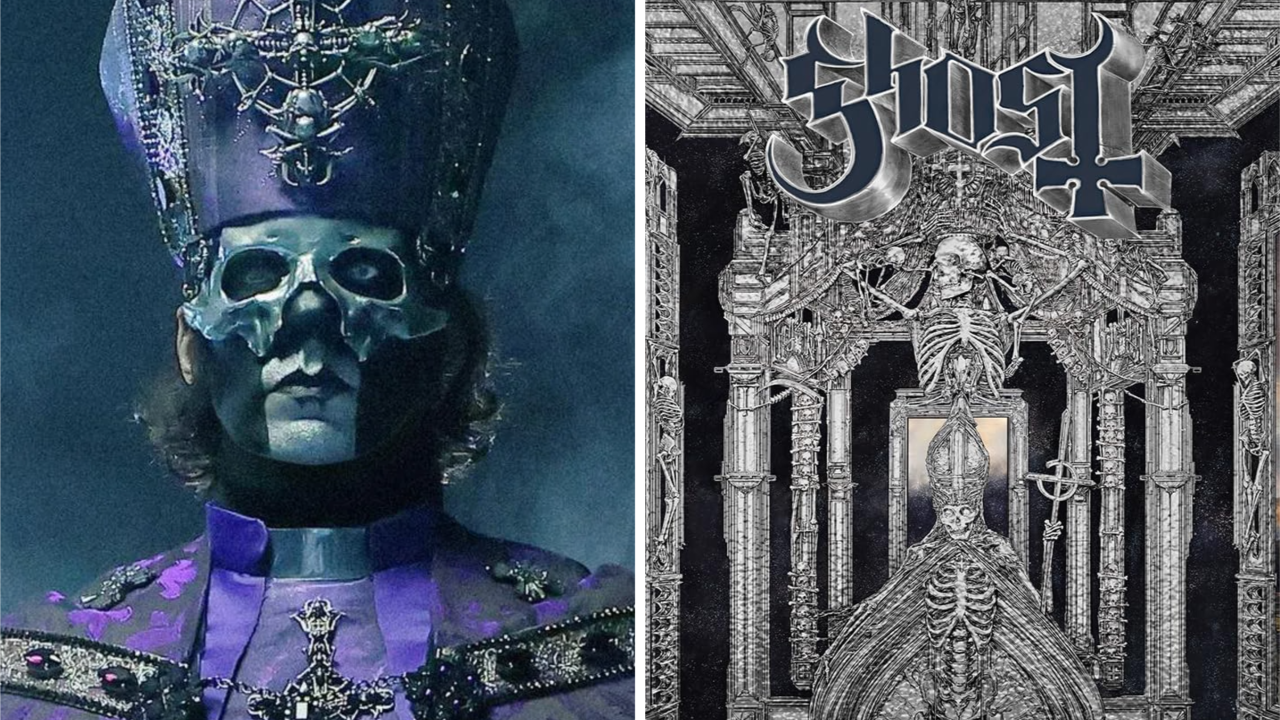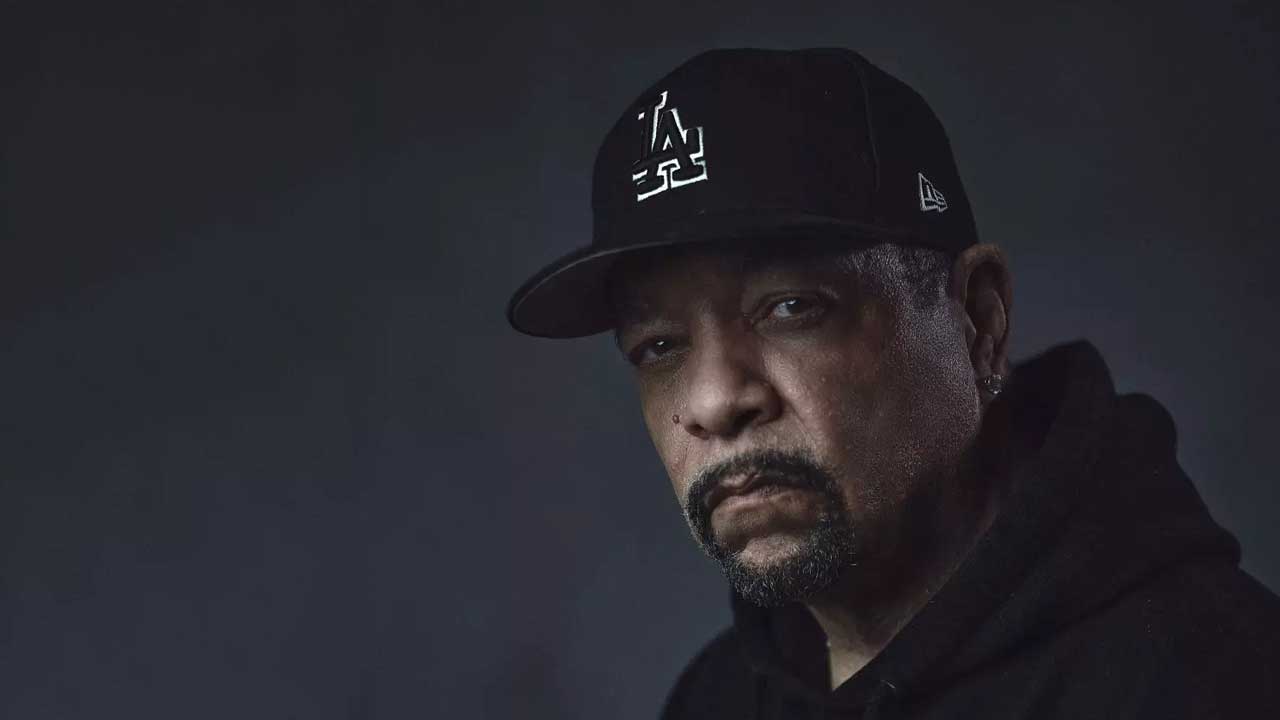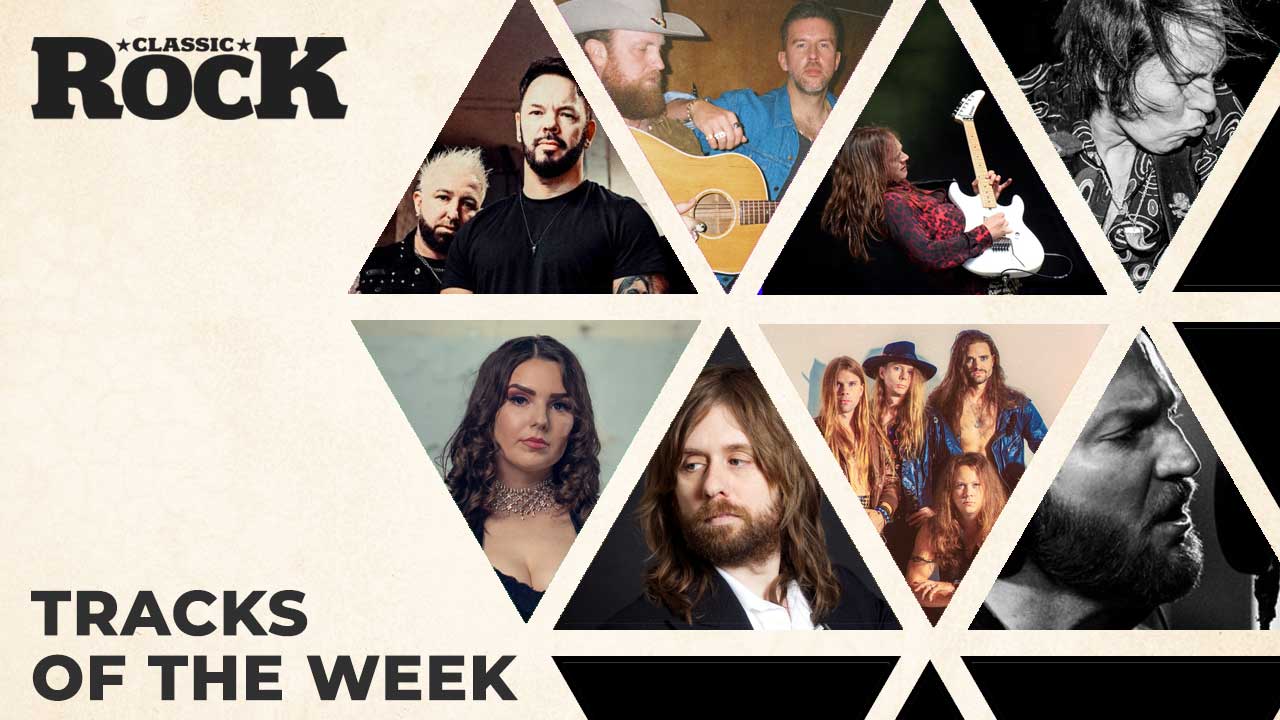Ilan Rubin is just 27 years old, and he’s already achieved more than many musicians do in a lifetime.
At the age of 11, Rubin played the Warped Tour and Woodstock in his brother Aaron’s band F.o.N.. By the time he was 18 he landed a gig as the drummer in Lostprophets and went on to drums for Nine Inch Nails and Paramore.
For almost a decade he’s fronted his own band The New Regime, in which he writes and records all the music, and since 2014, he’s also served as Tom DeLonge’s writing partner and multi-instrumentalist in Angels & Airwaves.
We caught up with the all-rounder to find out about his career so far…
Aren’t you the youngest person to play on stage at Woodstock?
Rubin: “Apparently so! It was that same summer as the first Warped Tour that I did, so I was 11 years old. To me, it sounds like something that’s more impressive than it actually is, only because it doesn’t have anything to do with skill or anything like that. I don’t want you to think that I’m being overly modest or anything, it’s just not something that I’m particularly proud of. I appreciate it, but it was just something that I did and that was it. And you have to think at this point I’m 27, so 11 was another lifetime ago.”
Who inspired you to pursue music at such a young age?
“I can sum that up with four drummers, but mainly John Bonham. He’s 100% my favourite of all time, ever since I first started playing drums. Also Stewart Copeland. Those two make up quite a bit of the style that I’ve evolved over the years. But I also really like Joe Morello and Buddy Rich, who are more traditional big band jazz drummers. I’m not into jazz too much per say, but I do like The Dave Brubeck Quartet, which is who Joe Morello played with, and Buddy Rich as a soloist is untouchable. As a drummer, I don’t care for drum solos either, but the way drummers of that era soloed and treated the drum set as an instrument is an art form that’s kind of been lost. You look at something like Moby Dick [Led Zeppelin II] or whatever, and it’s not even remotely in the same league as what those guys did in their day. And I love Moby Dick, but John Bonham’s skill was more how he played within Led Zeppelin and how he and John Paul Jones fed off each other. Nobody has been able to replicate the sound of his drums, and stylistically everything about him was unique: his swing, his foot, his fills and his beats. It was all just Bonham, and I think each one of those facets coincided to make something completely unique. But the way people like Buddy Rich and Joe Morello treated the drum set as a solo instrument is second to none.”
You joined Lostprophets in 2006. What can you tell us about your time in the band?
“Well, by the time Ian Watkins [was arrested for sexual offences, including the attempted rape and sexual assault of a child under 13], I was long gone. I left in 2008 and honestly lost touch with all of them. It’s unfortunate for many reasons aside from the crime itself, which is obviously one of the worst things that any sane human being will have ever heard. Not to make it about me, but that’s now a piece of my personal history that I’ve scratched away. It doesn’t affect me one way or another, but [that part of my career] is not fun to talk about because it’s been so tainted. But at the time, [joining the band] was a huge step up for me in my career. I played a couple of songs on the Liberation Transmission album, and my first shows in the UK ever were at Earl’s Court and the MEN Arena, so coming from two small bands to big arena shows like that was a huge step up for me. But by the time 2007⁄2008 came around it had become stagnant. Trent [Reznor] had seen me play with them at Reading [Festival] in 2007, so when he was needing to find a new drummer for Nine Inch Nails in 2008, he got in touch with me and asked if I was interested. I was, of course, and it was an opportunity I couldn’t pass up. It was the best move I ever made. So that was it for my time with Lostprophets.”
Have you had any contact with the rest of the band since Watkins was jailed?
“I’ve had very sporadic contact with them over the past eight years, and communication has been very minimal. Not in a malicious or avoiding sense, just that they’ve been doing their thing and I’ve been doing mine. Obviously, if we were to stumble across each other it would be very pleasant and civil, and I’m sure it would be good to catch up, but I just kind of parted ways with them back in 2008 and that was it.”
What’s the group dynamic like in Nine Inch Nails? How does it compare with other bands that you’ve played in?
“With Nine Inch Nails, Trent is obviously the man, and as far as collaboration is concerned the bulk of that takes place between him and Atticus Ross in the studio. It’s not the sort of band where you get together and throw ideas around, then jam and record them. That’s just not how it works. Trent writes the material, there’s collaboration there between Atticus and himself, and then he brings it to the musicians for them to play. But he definitely wants them to bring their own style to the table. That’s why they’ve been called or hired for a session.”
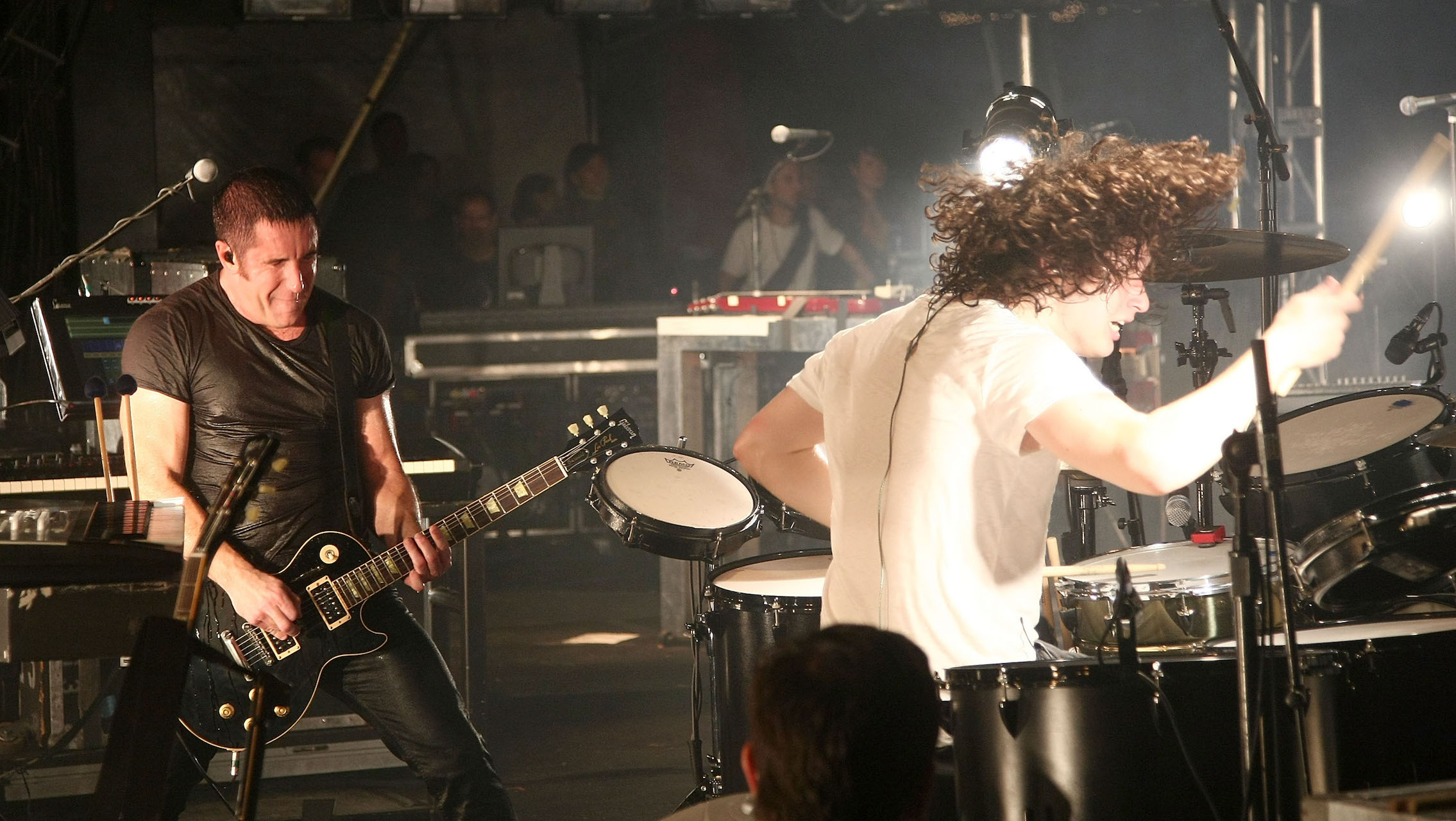
How does the recording process work then? Did you play any live drums on the Hesitation Marks album?
“I got to play drums a bit on Hesitation Marks, but it was more as an experiment. There were only one or two definite moments where Trent wanted live drums, and the rest of the time he just wanted random percussion. In the song Copy Of A for example, there’s this whole middle section where all this percussion kicks in, and the way that was recorded was a cart was literally rolled in with a bunch of different percussive instruments just lying there and he said, ‘Pick up every piece of percussion every four bars and do something different.’ There was no specific idea or anything he just said, ‘Go for it!’ So I did that, and they went into the studio later and took what they liked and layered it, and that’s the way they make a lot of music. They’ll have guys go in there and just play, and they loop record so that means the same piece of music is looping over and over again, and as it’s looping it’s also recording. Then they analyse it later and take what works, and just kind of move it around and see what makes sense. So it was a very experimental, ‘let’s just see what happens’ sort of session. I think that’s the way it is for most people that work with Trent, and it yields some very interesting results.”
What did you take away from your experience of working with Trent Reznor?
“I get along with Trent extremely well, and it’s been that way since day one. I really appreciate the way he works and his diligence, and his need to work out his vision. He pays extreme attention to detail, and he really puts in the time and effort. To still be putting in that much attention to detail 25 years into your career, and caring that much about topping yourself and not being repetitive or redundant, has to be admired and appreciated. And I’m a perfectionist in my own right, so I always go into work as prepared as can be and he appreciates that. I’m saying this with a light-hearted tone, but any other band that I played with pre-Nine Inch Nails did not have anywhere near that work ethic. So when I finally showed up to rehearsals in early 2009, I remember thinking, ‘This is the kind of organisation I should be a part of. This guy knows what he’s doing, he knows what he wants, and everybody comes in prepared. Excellence is the goal, nothing less is acceptable, and that’s all there is to it.’ That’s how I’ve always perceived work should be done. Why half-ass anything? But unfortunately I think a lot of bands do, and it seems to be a lot more play than it is work for some people. To me, the play is doing the work well. That’s what’s enjoyable to me. Nine Inch Nails was exactly that, and it was fantastic. Looking back on it, I also think it was incredible that Trent was willing to give a 20-year-old a chance, you know. But it worked out well and it was a great experience.”
Is The New Regime your band in the same way that Nine Inch Nails is Reznor’s?
“I suppose it’s a similar outlook and concept, yes. It’s one man steering the ship but it’s presented as a band because being a solo artist seems unappealing to me. I like bands. But I write, play and sing every note that you hear on The New Regime’s albums. Every recorded piece of music is me. That might sound really egomaniacal but that’s just the way it is, and without sounding pretentious I really do view it in the same way that a composer would view an orchestration, except that I’m capable of playing exactly what I want on every instrument. So it seems silly for me to have someone else come in and play when I know exactly what I want and I can do it myself. It’s not about ego or wanting all the glory, it’s just that I’ve spent my lifetime learning and playing music, and I got good at all these instruments over the years. The different facet is the live thing, and that’s when I bring in Danny Rubin – who’s my brother – on bass, and Hayden Scott on drums. The albums are very composed and precise in their way, but live I strip it down to a three piece and that enables the music to come across in a more raw fashion, which has its own power and energy. I also like jamming a bit and improvising and changing things up. That keeps things fresh on a nightly basis. I like to change songs in the set regardless, but even if we were to play the same eight songs every single night they would all yield slightly different results, and offer a slightly different perspective to the album. I like to use both platforms to their fullest potential: the album is there to be layered and very meticulous, and the live show is there to be energetic, entertaining and exciting.”
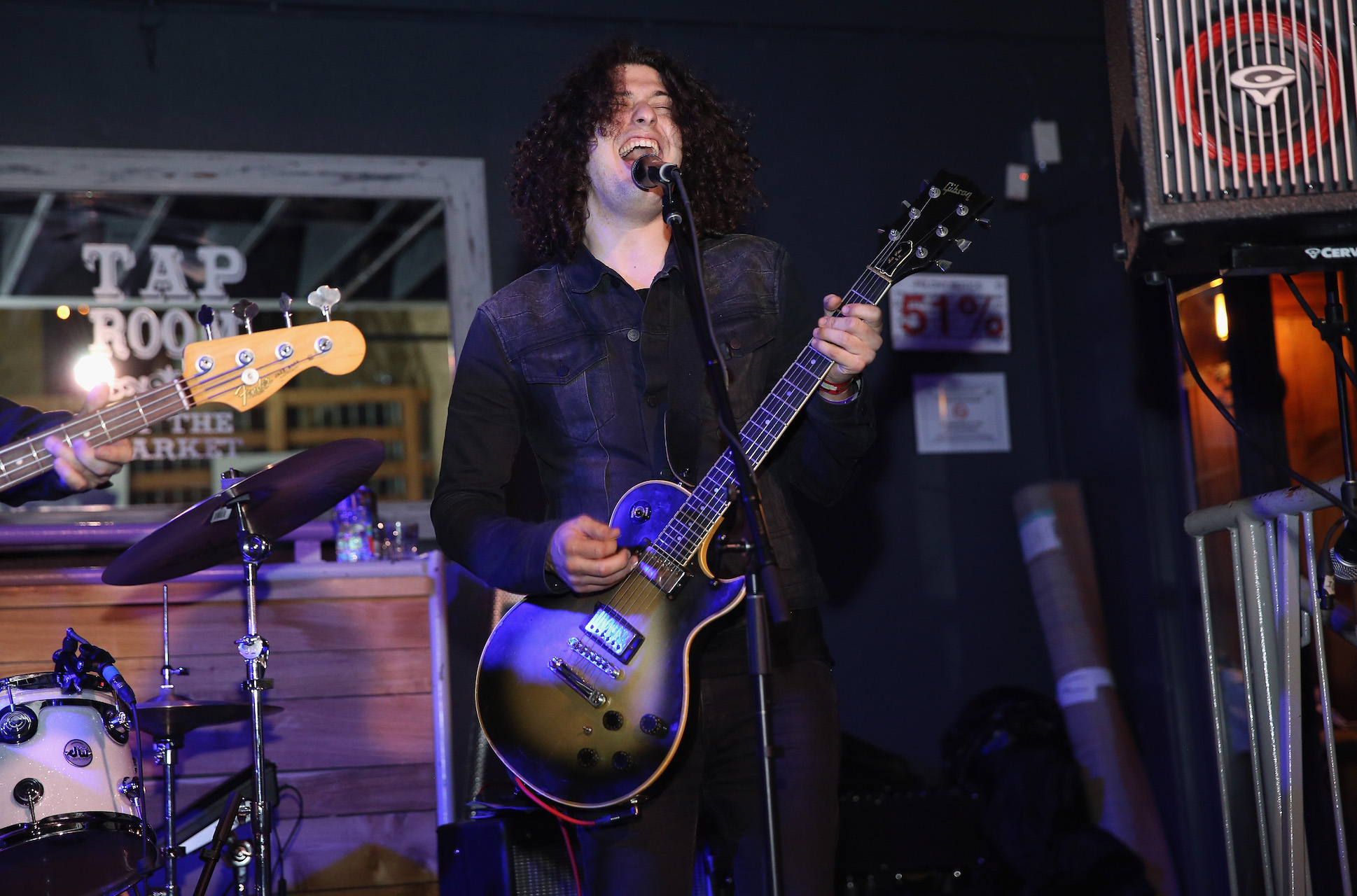
You’re also in Angels & Airwaves. Tom DeLonge seems like an interesting character.
“That’s an understatement! [laughs] I mean that in a good way, by the way.”
What made you want to work with him?
“Well, at the time I was just writing and doing my own thing. I’d just come off tour with The New Regime and the call came at a time when nothing was in the books. Oddly enough, it was the first time I’d played in a band with someone from San Diego since I was 14 or 15 years old. Atom Willard was the original drummer and he’s a friend of mine now, but he’d left the band and that’s when Tom called me. Both of us being from San Diego, we had some mutual friends or acquaintances, and we just had a very casual conversation. He was on tour with Blink-182 at the time and he was like, ‘Hey, this is what I’m looking for. I’ve seen videos of you playing with The New Regime, and I think it’s really cool that you’re a drummer but you also play piano and guitar, and you write your own songs and you sing. I’ve never had that kind of a writing partner before.’ I told him, ‘Look, I’m very used to being the hired gun in the background who just plays drums and doesn’t do anything else. What are you looking for?’ He was like, ‘No that’s not what I want. I want a guy who is musical in his own right that I can bounce ideas off of. You can totally bring things to the table, let’s try and do something different.’ That certainly sounded more appealing to me than just playing the songs that had been written and recorded, so that was it – I wanted to get in the studio and see what he and I could write.”
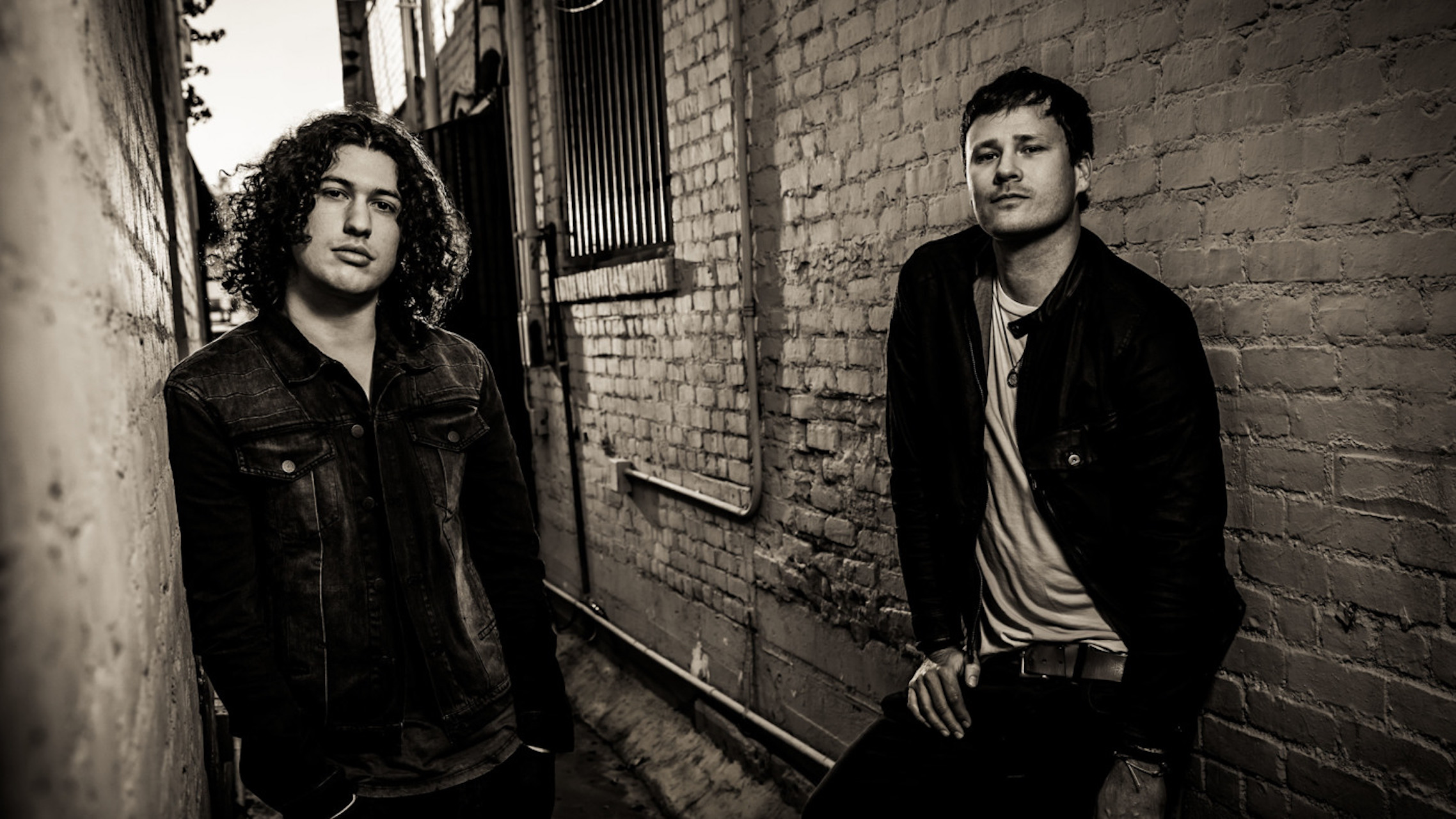
Are you pleased with how The Dream Walker album came out?
“I think as far as the Angels & Airwaves world goes, it was a different sound. We wrote something a bit unlike what he’d write himself, and certainly very different to something I’d write by myself, which I think was the point. It was fun.”
Will you make another Angels & Airwaves album together?
“We’re still in contact, but right now he’s busier than ever with all his other projects. He’s been working for a very long time setting up these properties and these characters like Poet Anderson, and he’s just had Sekret Machines and Strange Times [two cross media series that span fiction and non-fiction books and music] come out. These are all their own little universes and stories around characters, and I have to commend him for his creativity and really putting his money where his mouth is and seeing these things through. He’s got comics, he’s got full-length novels, he got cartoons and he’s working on movies. It’s a very in-depth project that he’s been talking about for many years, but now it’s actually seeing the light of day and it’s very impressive stuff. So between him doing all that and me needing to continue as the musician that I am has meant that he’s just kind of doing his thing and I’m doing mine. I’m too young to not be out and about touring. Tom already has all that and more under his belt with Blink and Angels, but I’m not the type to sit at home doing nothing. I like to be booked non-stop to be honest with you. But Tom’s a good dude. We’re friends and we send each other stupid photos on a weekly basis via text.”
Don’t you ever read what he says in the press and cringe though?
“I think everybody that knows him does! [laughs] But what can you do? He’s not hurting anybody, so it doesn’t matter.”
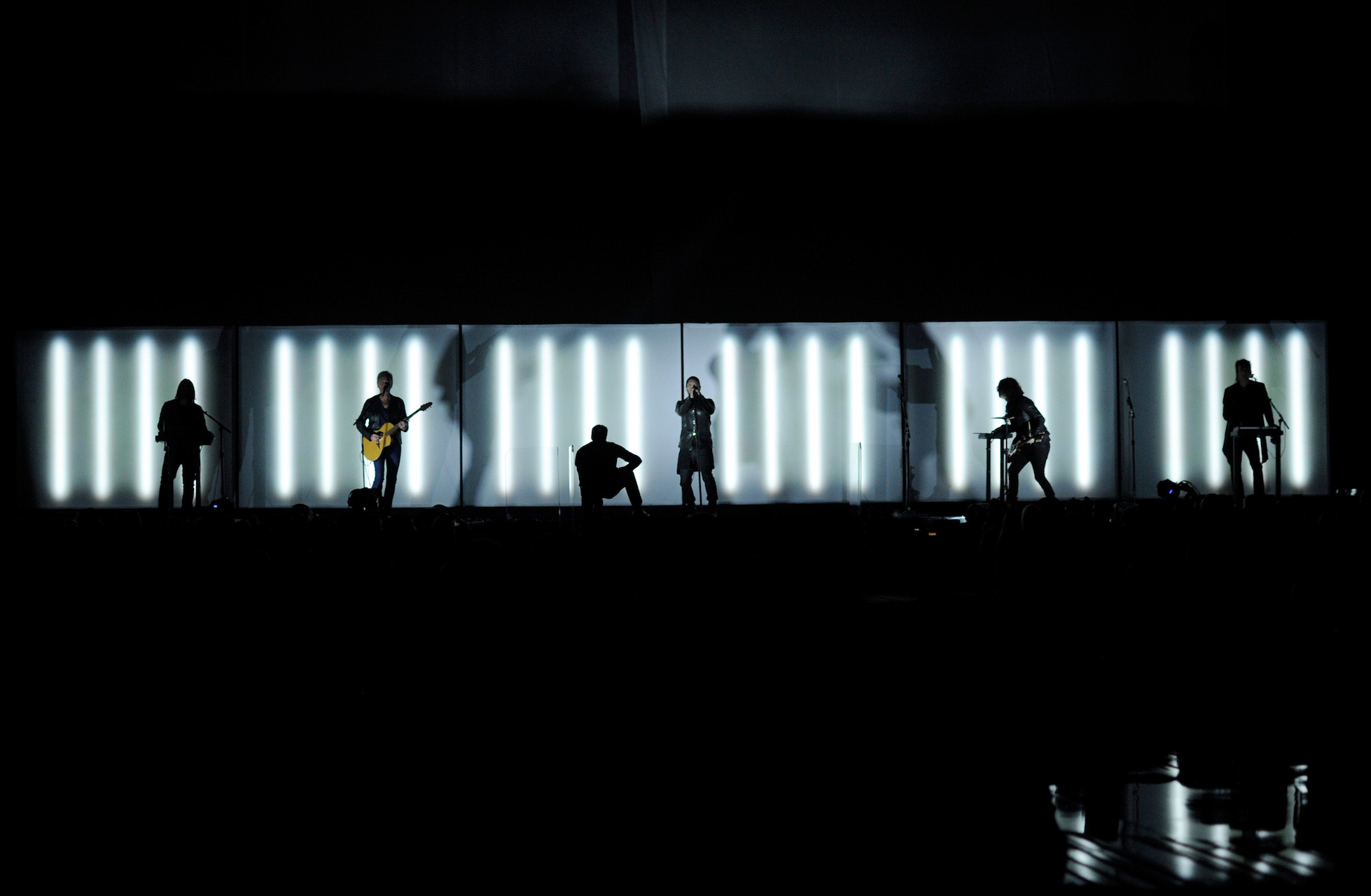
How did you end up in Paramore?
“They’d written the self-titled record and I got the call to ask if I would play drums on it. It was as simple as that.”
Did you notice the mood in the band to be weird at all, coming in after two of the original members had just left?
“I think all that had been dealt with prior to when I got there. When I did get there they were extremely friendly and in good spirits, and they were just excited to get to work. They’re fantastic people, and I really do consider them friends. They’re very good-hearted, hard working people and it was a great experience. Initially, it was just supposed to be me playing on the album but we got along so well they were like, ‘What are you doing? You wanna come out and play some shows?’ Now at that time I knew secretly that Nine Inch Nails were regrouping in May 2013, but I couldn’t say anything about it so at the start of the 2013 I said to them, ‘Look, I have a commitment as of May. I would love to play with you guys because I’ve had such a good time working with you on the album, but I understand if you want to find somebody who can do the whole cycle.’ But they said they wanted me to play as long as I could, and so I did. Then in May I had to leave them and go join Nine Inch Nails again. But let’s say the schedule had worked out, I would’ve loved to have done the whole cycle with them. They’re such a pleasant group of people and their whole crew and team is fantastic. I had a really good time with them.”
Paramore are much more in the pop realm than anything else that you’ve done. How did you find drumming in a more commercial band like them?
“It is in the pop realm, but I think what obviously sets them apart is true talent. They’re all very good at what they do, and from the second Hayley [Williams] opens her mouth you can tell she’s got an incredible voice and she’s incredible singer. Jeremy [Davis] is a great bass player and Taylor [York] is a really good guitar player as well, and as a unit they work very well. So I think it’s their talent that sets them apart from anything in that genre, or anything even remotely related to that genre.”
How will it affect the songs now that Jeremy has left the band ? Do you think it become more like a Hayley Williams solo project now it’s just her and Taylor left from the original Paramore line-up?
“I really don’t know to be honest with you, because when I got there all the songs were written and they were in pre-production. They were like, ‘OK, let’s talk about drum parts. These are the ideas we have. I like that thing that you played. Why don’t you try something else? Play more like you.’ That’s what it was when I came into the picture, and all that work was already finished. So yeah, I couldn’t tell you.”
What do you think about the current state of rock music?
“I hate to say it and I know I won’t be the first, but I feel like music is in a very bleak place right now. From my perspective – and I’m speaking generally right now, not just about rock – as more money leaves the music industry, labels have to rely more on trying to find the sure thing and the safe bets are always the least interesting. The money isn’t there in the same proportion as it was 10 years ago, and labels have less patience, less time, and less money to gamble with. I think the concept of investing in an artist is obsolete, because people don’t want to wait three or maybe four albums to get their money back. If they don’t hit on the first one then it’s done, and I think that’s a very poor outlook and a very bad place for music to be. So many great bands hit their stride later on in their careers. Queen are one of my favourite bands ever, but based on the results of Queen and Queen II they would’ve been dropped if that was today. It wasn’t until Sheer Heart Attack where they came up with their first great song – Killer Queen – and then of course they blew all the doors down with A Night at the Opera, which was their fourth album. If you don’t let the seeds grow and give bands the potential to progress then you’re only shooting yourself in the foot, but as time goes by we’re getting further and further away from that concept of investing. That’s really unfortunate because people are influenced by what’s around, and when you have mediocrity more present than anything else, what else are the up-and-comers looking to? I don’t want to sound as if I’m saying that everything out now is garbage, but it could definitely be a lot better. There’s very little that’s fresh or adventurous or unique out there, and it feels like the artistry and the ambition is practically non-existent.”
What’s the solution then? What would you say to a young person reading this who’s thinking about starting a band?
“Study up. Everything is on a timeline, and for things to be where they are right now they had to get there from a certain point, so work your way back. It’s fairly easy, at a very superficial level, to say what the highlights of the ‘60s, ‘70s, ‘80s, ‘90s and the 2000s were, but there’s also a wealth of information there, and music to learn from. Taste is something that’s unique and you just like what you like, but you take what you like and let it seep into your creativity, and that’s how people create something unique. It’s never something that’s 100% never been heard before. It’s somebody’s take on something that they like. But unless you really know what’s out there you’re not really going to know what could be, you’re only going to know what’s happening at that precise moment, and unfortunately what’s going on right now is not very interesting. I hope that doesn’t sound to negative. That’s just the way I feel.”
Which band had the most influence on you growing up?
“When I started playing drums my dad said, ‘Listen to this,’ and he gave me a copy of Led Zeppelin. The rest is history. They’ve been my favourite band ever since I was eight years old.”
What are your plans for the rest of this year?
“They revolve around touring as much as I possibly can. I think it’s the best way to expose people to what The New Regime is about and build a base that will want to hear the music that’s coming next. I’m always writing so I don’t find it necessary to set time aside for that. A couple weeks to record would be nice to take stock of all the ideas I’ve accumulated over the year though. But, in a word: shows.”
The New Regime’s new album Exhibit B is out now. They’ll be supporting Muse in Europe next month. For more information, visit their Facebook page.
